Infertility affects a significant portion of the global population, with 17-18% of couples worldwide facing difficulties in conceiving. It is defined as the inability to conceive after having regular, unprotected sex for a period of 6 months to 1 year, depending on the age of the couple. Infertility is not synonymous with sterility. While sterility refers to an absolute inability to conceive, infertility indicates that conceiving is difficult but still possible with the right treatment and diagnosis.
In around one-third of infertility cases, the issue lies with the female partner, in another third with the male partner, and in the remaining cases, both partners contribute to the problem. Understanding the causes of infertility in both men and women can provide essential insights into the condition and guide couples in seeking effective treatments.
FEMALE INFERTILITY

Infertility in women often manifests through menstrual irregularities. These can range from heavy periods to scanty or irregular menstrual cycles, with periods occurring every 10-15 days or only every 2-3 months. Such irregularities lead to inconsistent ovulation, complicating the chances of conceiving.
Common Causes of Female Infertility
- Polycystic Ovary Syndrome (PCOS): PCOS is one of the most common causes of infertility in women. This condition involves a hormonal imbalance that can interfere with regular ovulation. Women with PCOS often have elevated levels of androgens (male hormones) and may experience irregular periods or anovulation (lack of ovulation). PCOS can also result in increased prolactin levels, which further disrupts ovulation.
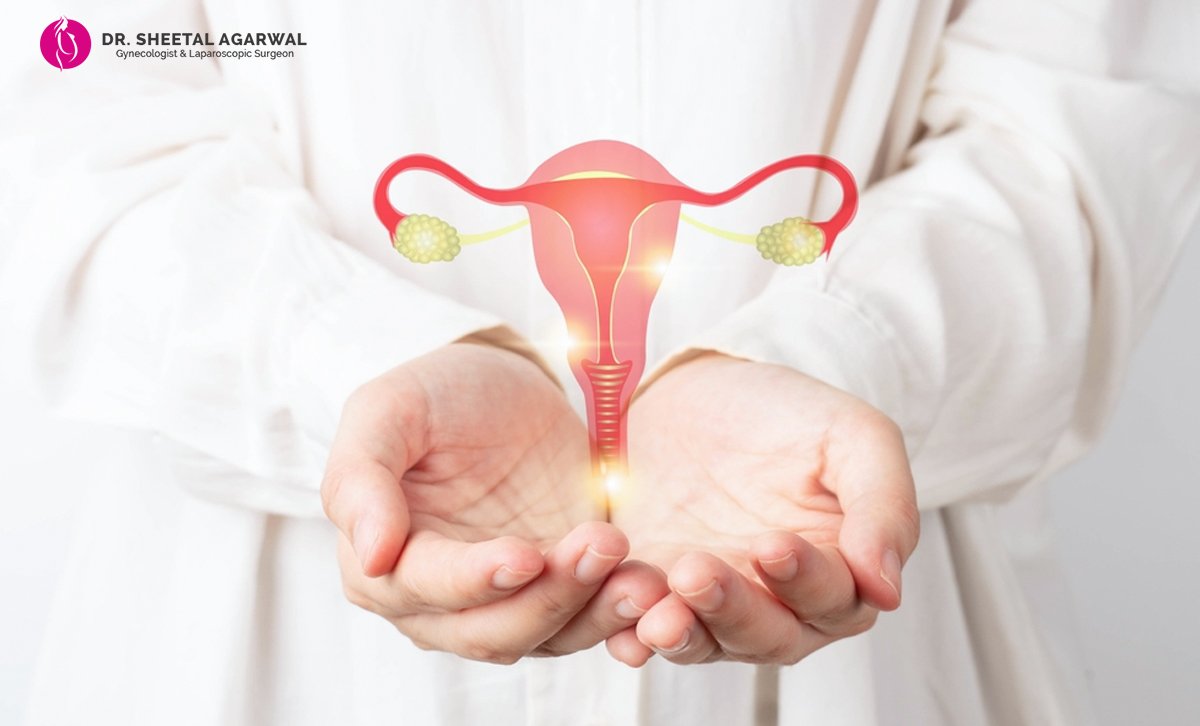
- Thyroid Disorders: Both hyperthyroidism (overactive thyroid) and hypothyroidism (underactive thyroid) can negatively impact fertility. These conditions can alter hormone levels in a way that disrupts ovulation and the menstrual cycle. Women with thyroid disorders may experience irregular periods or difficulty in conceiving.

- Ovulation Disorders: Ovulation problems are not limited to PCOS. Eating disorders, extreme weight loss, or obesity can also cause disruptions in normal ovulation. The body’s reproductive system relies on a delicate balance of hormones, and drastic changes in weight or diet can throw this balance off.

- Uterine Problems: Structural abnormalities in the uterus, such as polyps, fibroids, or scarring, can prevent a fertilized egg from implanting properly. Uterine fibroids, non-cancerous growths in the uterine wall, can distort the shape of the uterus and make it difficult for an embryo to develop.

- Fallopian Tube Disorders: The fallopian tubes are essential for natural conception as they allow the sperm to meet the egg for fertilization. Blockages or damage to the fallopian tubes, often caused by infections like salpingitis (inflammation of the fallopian tubes) or sexually transmitted infections (STIs) like chlamydia, can impede this process. Tuberculosis and other pelvic infections can also scar the tubes, increasing the risk of ectopic pregnancy, which can be life-threatening if untreated.
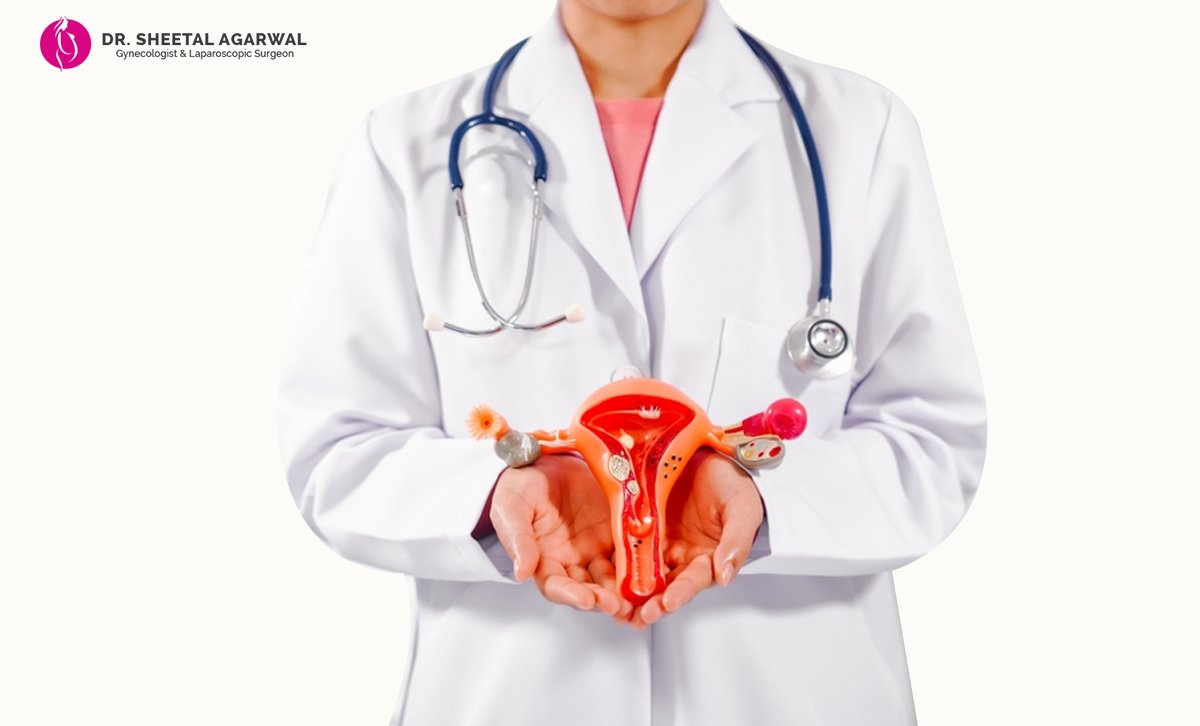
- Endometriosis: Endometriosis is a condition where tissue similar to the lining of the uterus (endometrium) grows outside the uterus, often affecting the ovaries, fallopian tubes, or pelvic lining. This tissue can form adhesions and cause inflammation, leading to pain and ovulation problems. Endometriosis is a significant cause of infertility and often requires medical or surgical treatment from the best gynaecologist surgeon in Delhi.

- Premature Ovarian Failure (POF): POF occurs when a woman’s ovaries stop functioning before the age of 40. This condition can be caused by genetic factors, immune system disorders, or treatments like chemotherapy and radiation therapy. Women with POF may experience irregular periods, hot flashes, and infertility. Consulting the best gynaecologist in South Delhi can provide guidance on managing POF and exploring fertility preservation options.
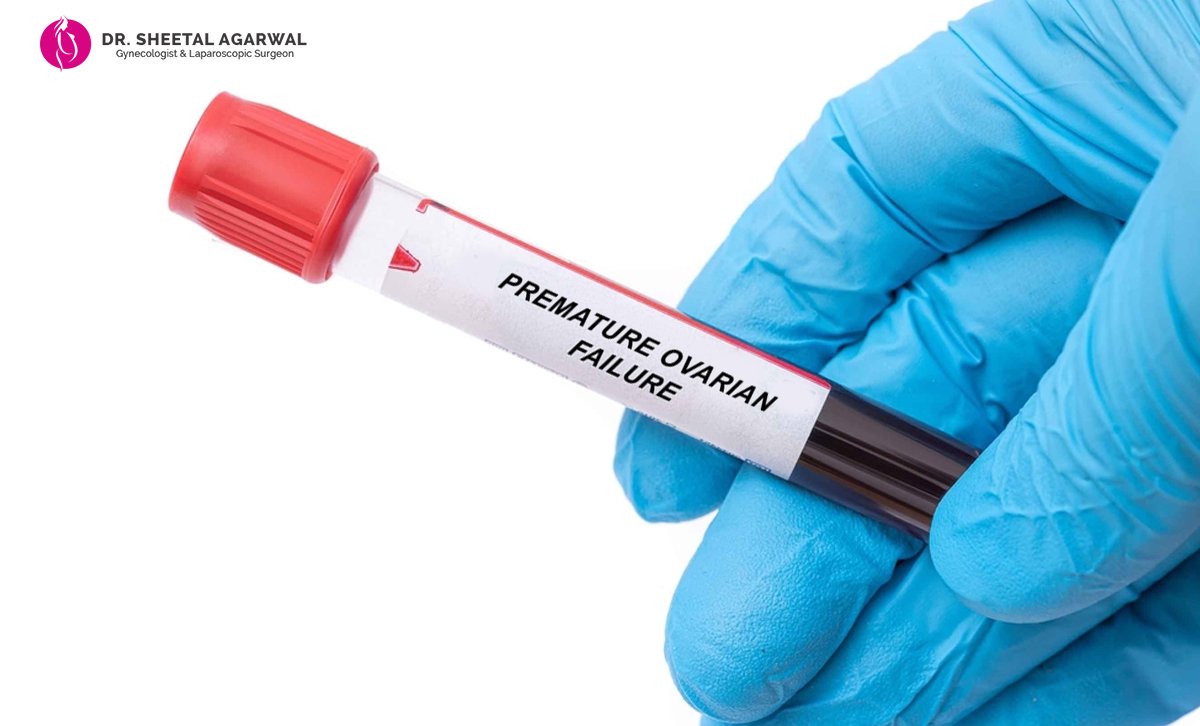
- Pelvic Adhesions: Adhesions are bands of scar tissue that form after pelvic infections, surgeries, or endometriosis. These bands can bind organs like the ovaries, fallopian tubes, and uterus, impairing their function and leading to infertility. Laparoscopic surgery, performed by the best laparoscopic surgeon in Delhi, is often used to remove adhesions and improve fertility outcomes.
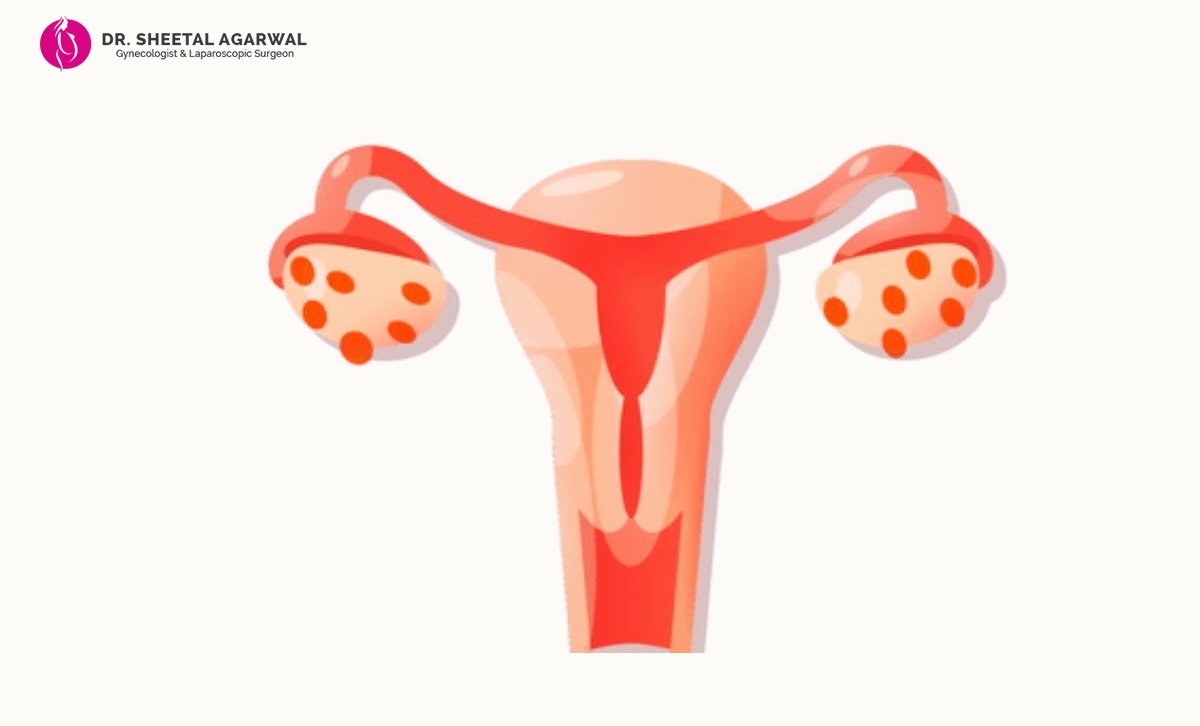
- Cancers and Treatments: Certain cancers, particularly ovarian and uterine cancers, can affect a woman’s fertility. Additionally, treatments like chemotherapy, radiation, and surgery can damage the reproductive organs and decrease the chances of conception. Fertility preservation methods, such as egg freezing, should be discussed with a gynaecologist surgeon in Delhi before starting cancer treatment.

MALE INFERTILITY
Male infertility contributes to around one-third of infertility cases. Unlike female infertility, which is often related to ovulation and structural issues, male infertility primarily revolves around sperm production and delivery problems.
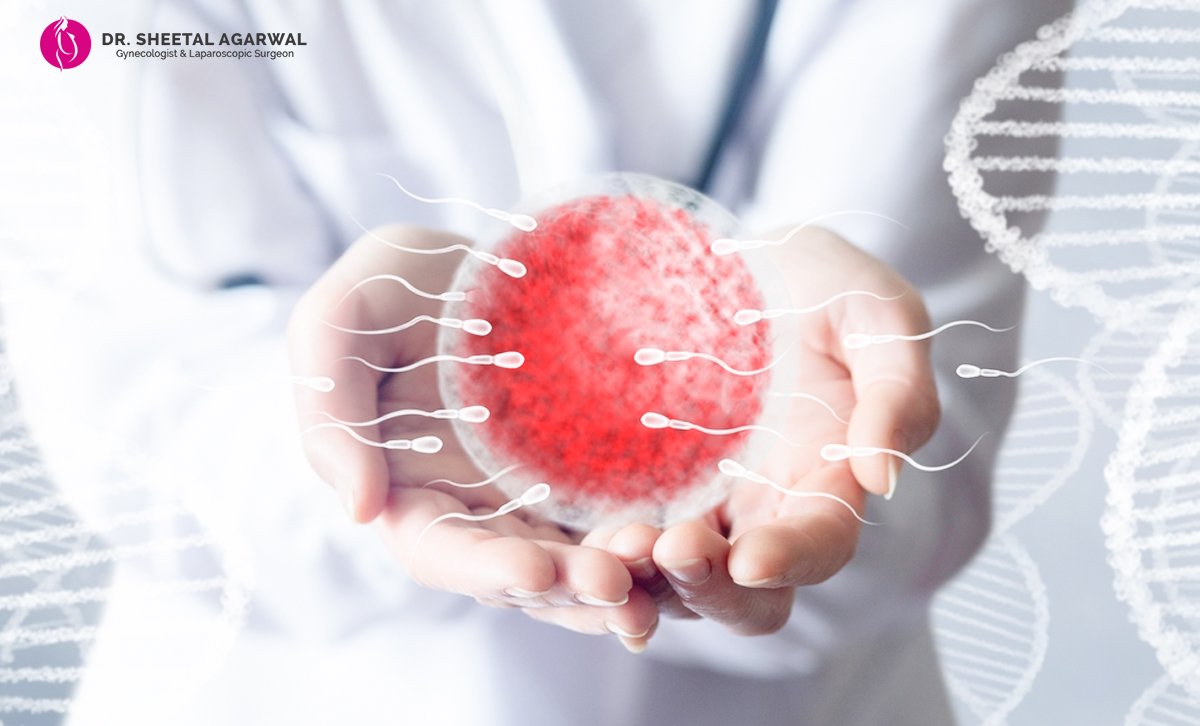
Common Causes of Male Infertility
- Low Sperm Count: A low sperm count (oligospermia) is one of the leading causes of male infertility. It can be caused by undescended testicles, hormonal imbalances, diabetes, or conditions like varicocele (enlargement of veins within the scrotum). Infections like mumps, gonorrhea, and chlamydia can also damage sperm-producing tissues. Men facing these issues should seek guidance from specialists in reproductive health.
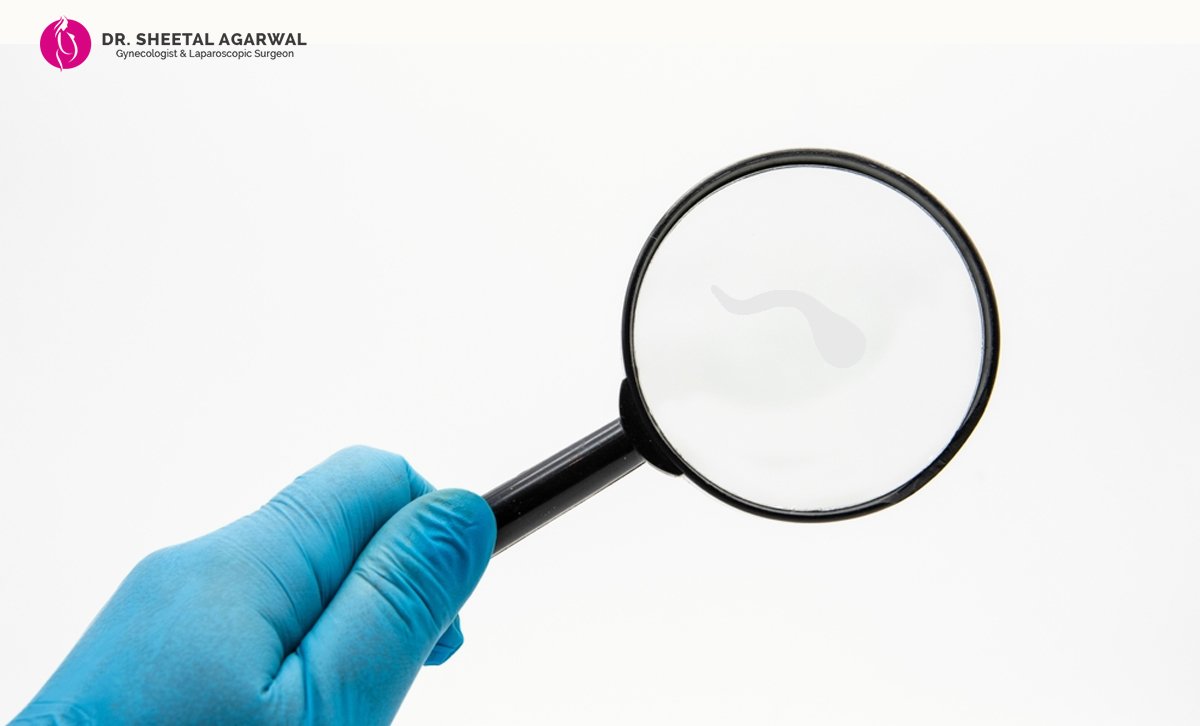
- Sperm Delivery Issues: In some men, the sperm cannot be delivered properly to the female reproductive system. Conditions like retrograde ejaculation (where sperm flows backward into the bladder) or premature ejaculation can prevent sperm from reaching the egg. Additionally, blockages in the reproductive tract due to infections, surgeries, or congenital issues can lead to infertility.

- Environmental and Lifestyle Factors: A man’s lifestyle can significantly affect his sperm count and quality. Exposure to harmful chemicals like pesticides, heavy metals, and solvents can reduce fertility. Smoking, excessive alcohol consumption, and drug use, particularly marijuana and anabolic steroids, can impair sperm production. Extreme heat exposure, such as frequent use of saunas, hot tubs, or even tight-fitting clothing, can also negatively impact sperm quality.

- Cancer and Treatments: Like women, men who undergo cancer treatments, including chemotherapy and radiation, may experience a decline in fertility. These treatments can damage sperm cells or affect sperm production in the testicles. Fertility preservation options, such as sperm freezing, should be discussed with a healthcare provider before undergoing cancer treatment.

RISK FACTORS FOR INFERTILITY
Certain factors increase the risk of infertility in both men and women. Understanding these risk factors can help couples take preventive measures or seek early treatment.

- Age: Age is one of the most significant risk factors for infertility. In women, fertility declines rapidly after the age of 35, as both the number and quality of eggs decrease. For men, sperm count and quality may begin to decline after the age of 40. Couples trying to conceive should be aware of these age-related factors and may consider consulting the best gynaecologist in South Delhi for fertility assessments and treatments.

- Tobacco Use: Smoking can reduce fertility in both men and women. Women who smoke are more likely to experience miscarriages, premature births, and complications during pregnancy. In men, smoking can lower sperm count, affect sperm motility, and lead to erectile dysfunction.

- Alcohol and Marijuana Use: Excessive alcohol consumption and drug use can impair fertility in both genders. Women who drink heavily may experience irregular periods and ovulation problems, while men who use alcohol or drugs frequently may experience a decline in sperm count and quality.

- Weight Issues: Both being overweight and underweight can negatively affect fertility. Obesity can disrupt hormone production, leading to ovulation problems in women and reduced sperm production in men. On the other hand, extreme weight loss or being underweight can cause irregular periods and anovulation in women, as the body prioritizes survival over reproduction.

Infertility is a complex issue that can affect both men and women. However, with the right guidance and treatment from medical professionals, such as the best gynaecologist in South Delhi or the best laparoscopic surgeon in Delhi, many couples can overcome infertility and achieve their dream of parenthood. Whether the cause is related to lifestyle, medical conditions, or structural issues, early diagnosis and treatment are crucial in improving fertility outcomes.
Couples facing infertility should consider lifestyle modifications, fertility treatments, and surgical interventions to address their specific concerns. By seeking help from a gynaecologist surgeon in Delhi, they can explore advanced fertility treatments such as in vitro fertilization (IVF), intrauterine insemination (IUI), and other assisted reproductive technologies (ART) to increase their chances of conception.


